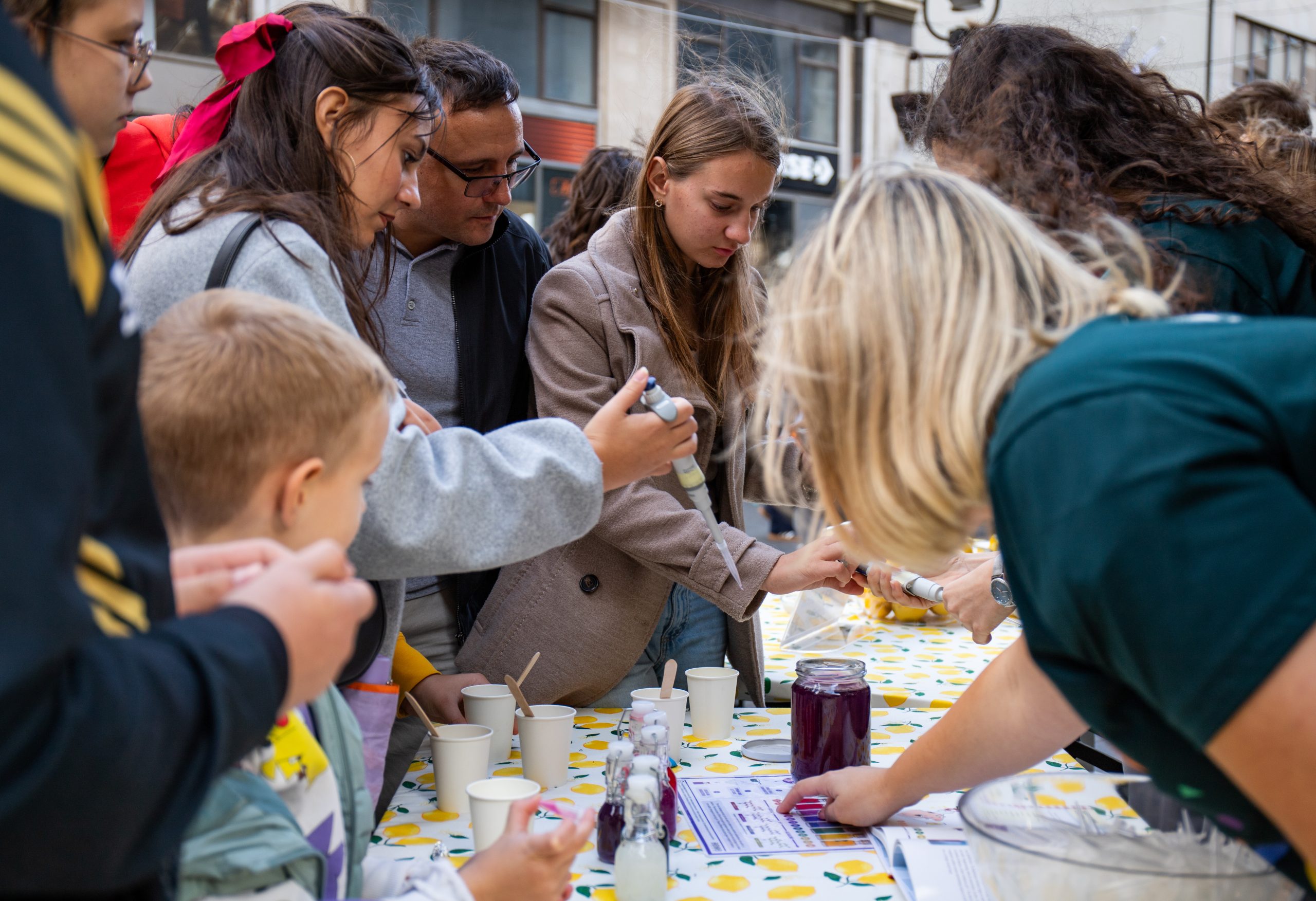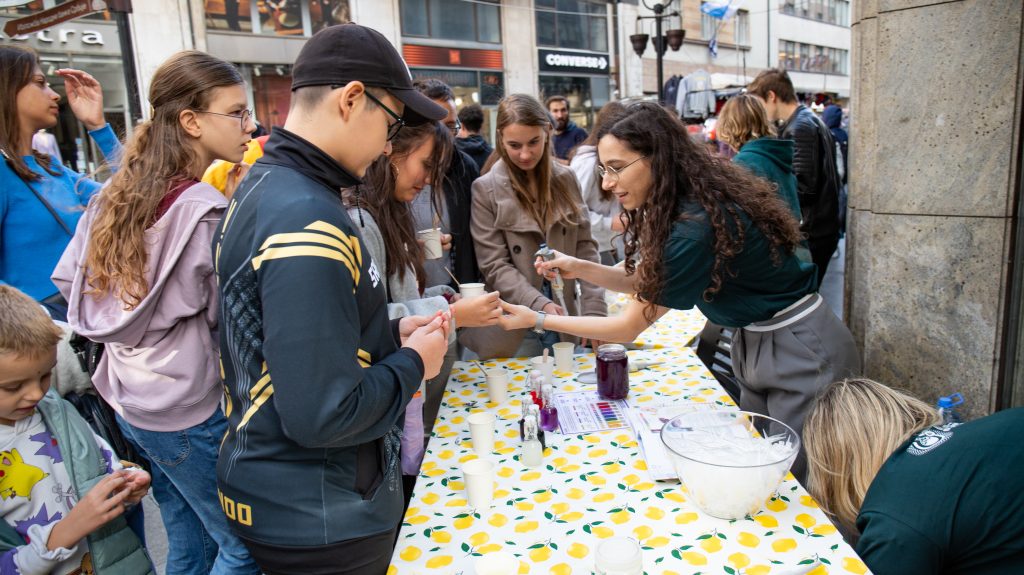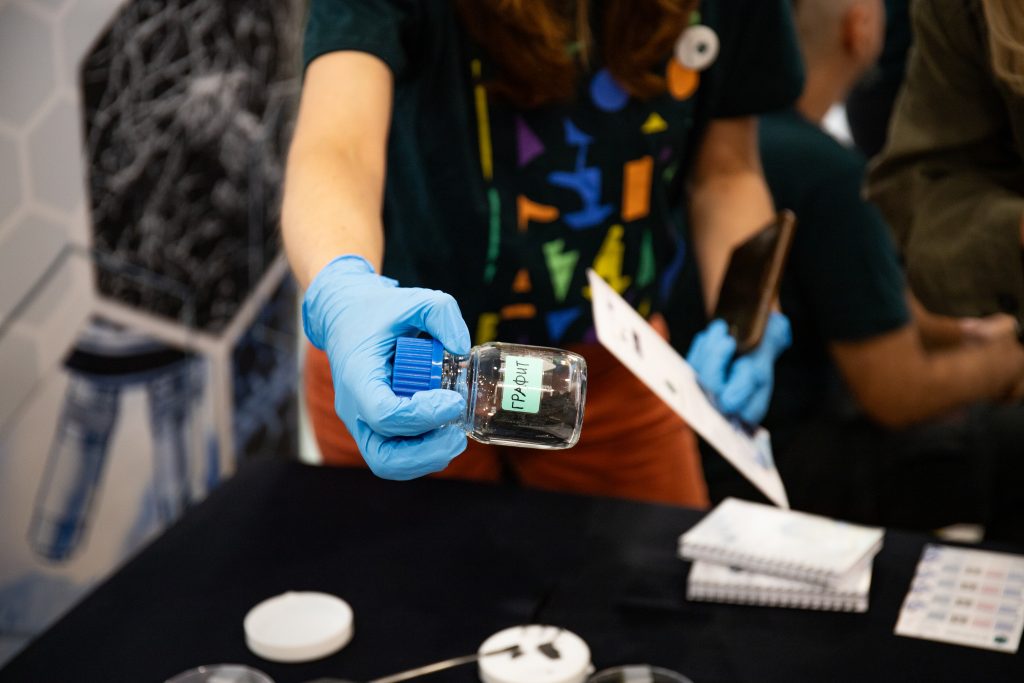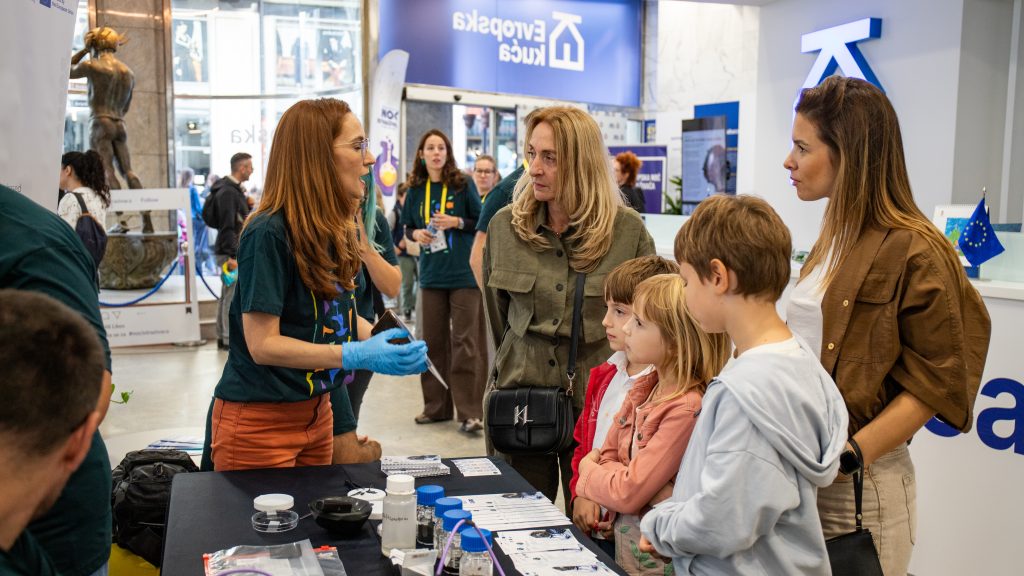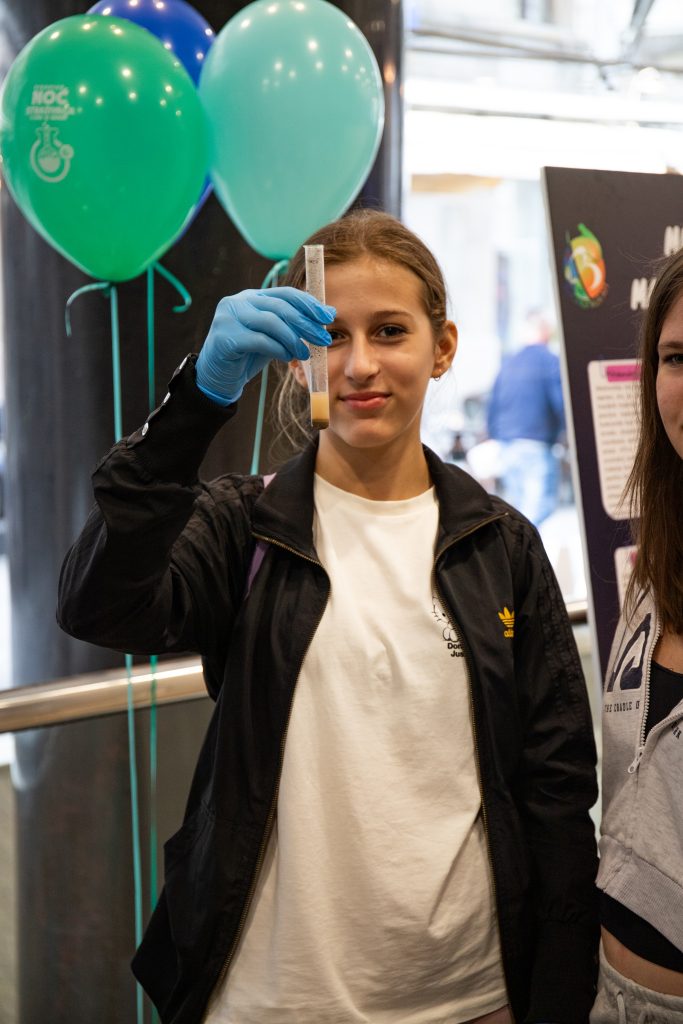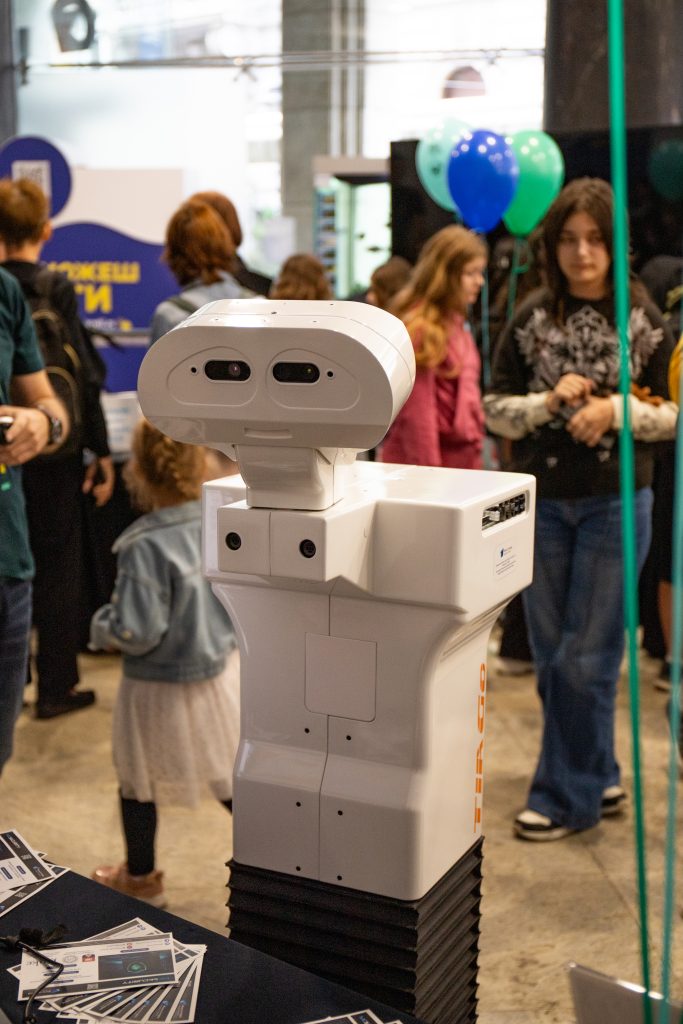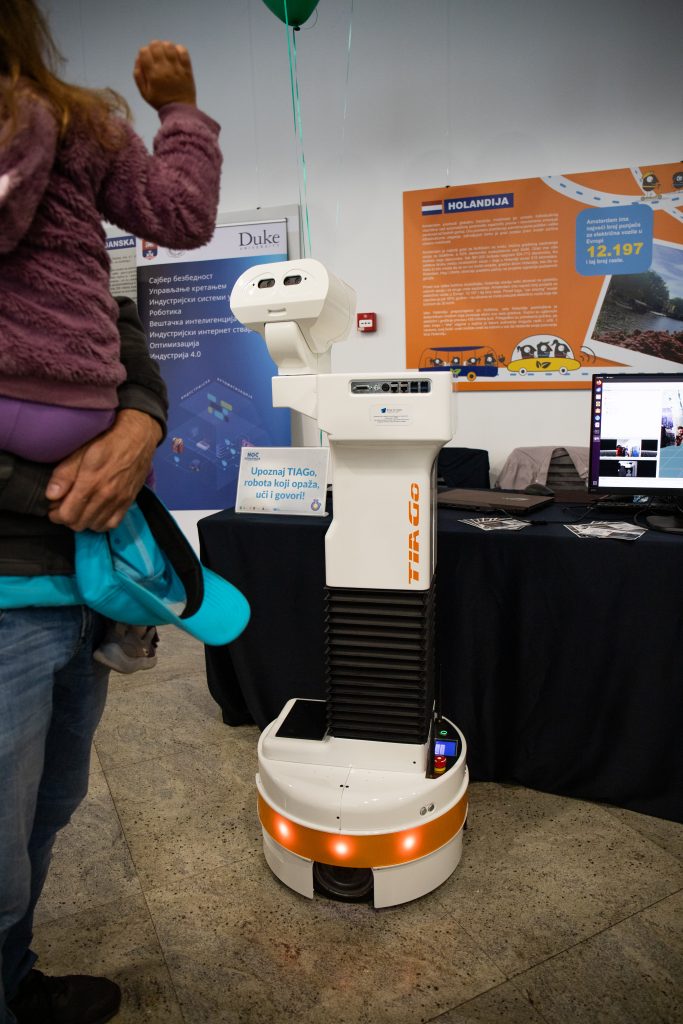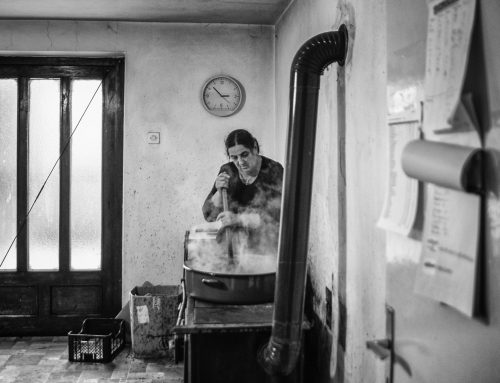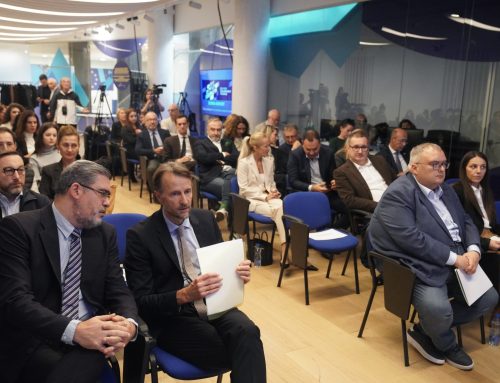What TIAGo — a talking robot — thinks; how we combat tumours using light; and how silver and graden stop electromagnetic waves. Visitors were able to get answers to all these questions during the opening of the European Researchers’ Night at Europe House in Belgrade.
European Researchers’ Night is an event initiated by the European Union with the aim of bringing science closer to citizens and increasing young people’s interest in scientific fields. Although the programme is intended for visitors of all ages, special emphasis is placed on younger audiences, to encourage them to enter and take part in the world of science, and to learn about its presence in everyday life. European Researchers’ Night strives to make science accessible to everyone in an engaging and comprehensible way.
The opening ceremony was attended by the European Union Ambassador, Andreas von Beckerath, the State Secretary at the Ministry of Science, Technological Education and Innovation, Marija Gnjatović, award-winning student of the Mathematical Grammar School, Vladimir Đurica, and Jasmina Nestorović Živković, project coordinator of European Researchers’ Night.
Ambassador von Beckerath stressed that European Researchers’ Night is a unique evening.
“On that night, science leaves laboratories and classrooms and meets all of us. It is a night when we can see that research is not something distant or complicated, but something we encounter every day — from the phones in our hands and the medicines that safeguard our health to the clean energy that will power our future.”
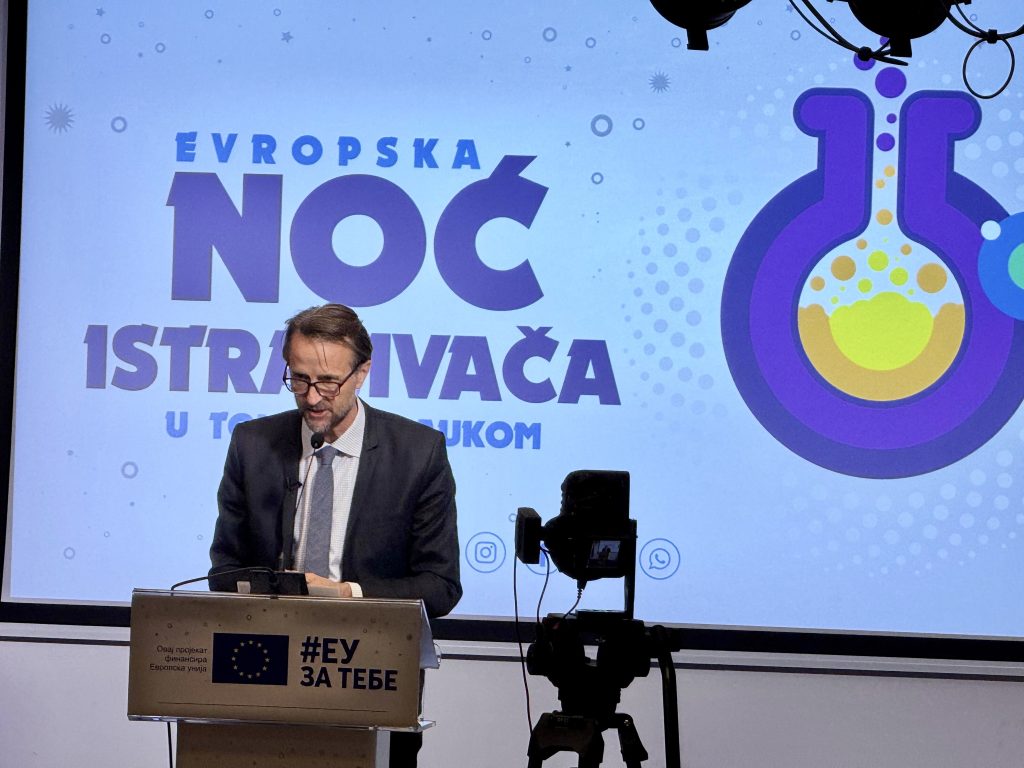
Pupils of the Mathematical Grammar School traditionally return from competitions with many medals and then go on to join the academic and scientific community.
“I am very pleased to be here and to have the opportunity to speak at the opening of this event with other lovers of science. The popularisation of science is very important for the development of our society, given that the world around us is based on it. Science has always been, and always will be, a way of life and thinking for me — and, I believe, for my peers as well,” said Vladimir Đurica.
European Researchers’ Night is being held in Serbia for the sixteenth time, drawing great public interest.
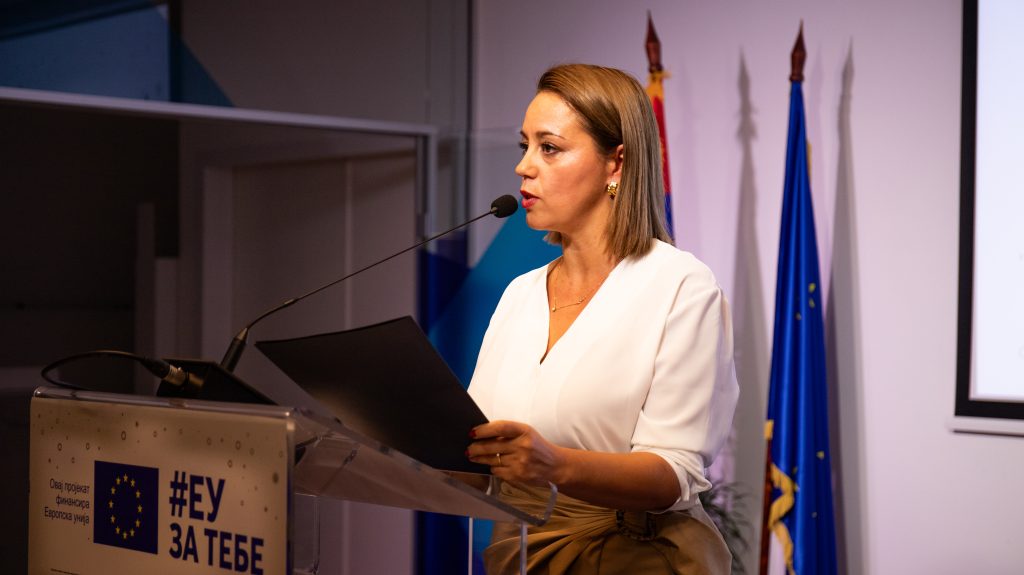
“Tonight we are in the company of creativity and curiosity, as part of a large European family that has been celebrating science and research through European Researchers’ Night for 20 years,” were the opening words of Jasmina Nestorović Zdravković, the project coordinator of European Researchers’ Night.
In addition to activities at Europe House, more than 200 programmes are taking place in a further sixteen cities across Serbia, which this evening once again confirmed that Serbia is a firmly rooted member of the European scientific community.
European Researchers’ Night is financed through two EU projects — ReFocuS FLOW and TRAILS. Supporting the scientific community in Serbia has been one of the European Union’s main activities over the past 20 years.

